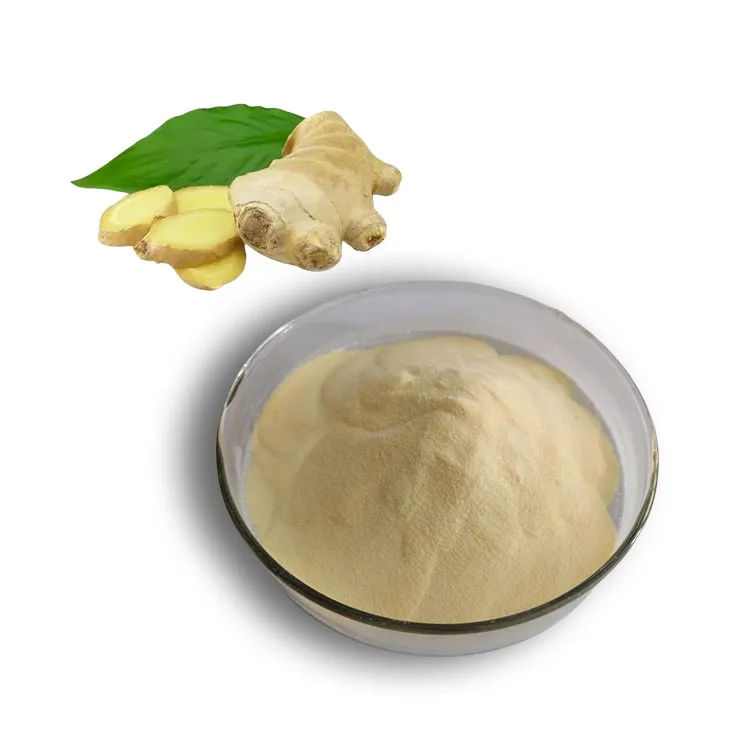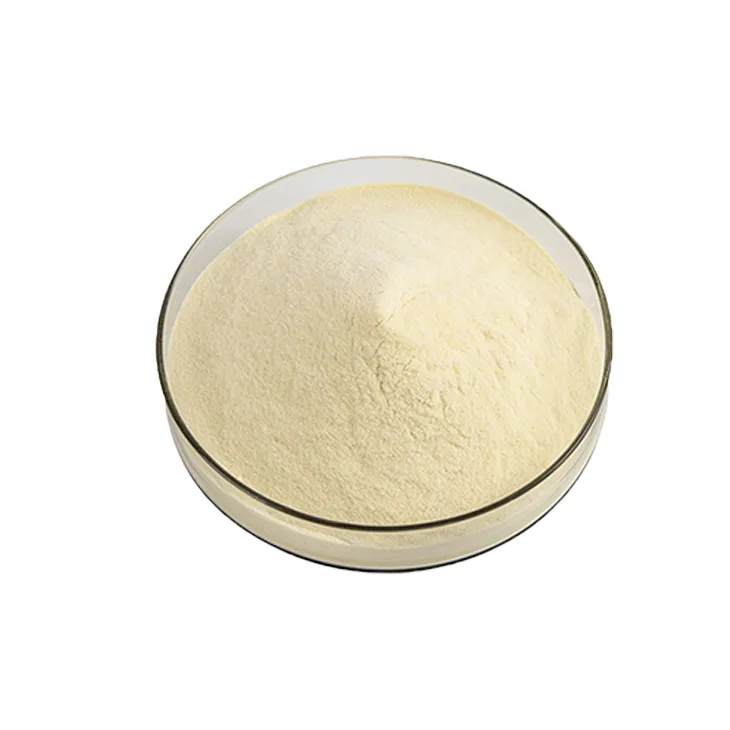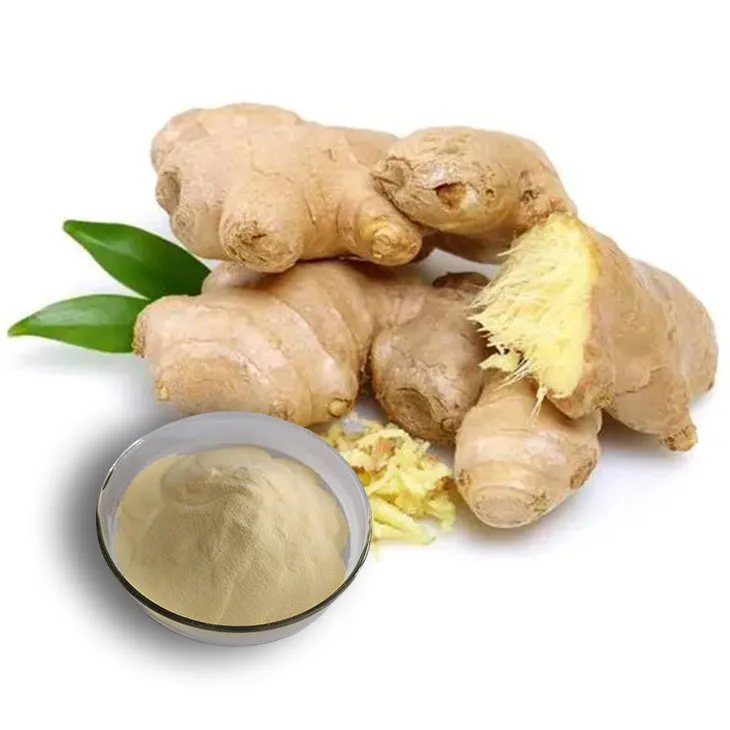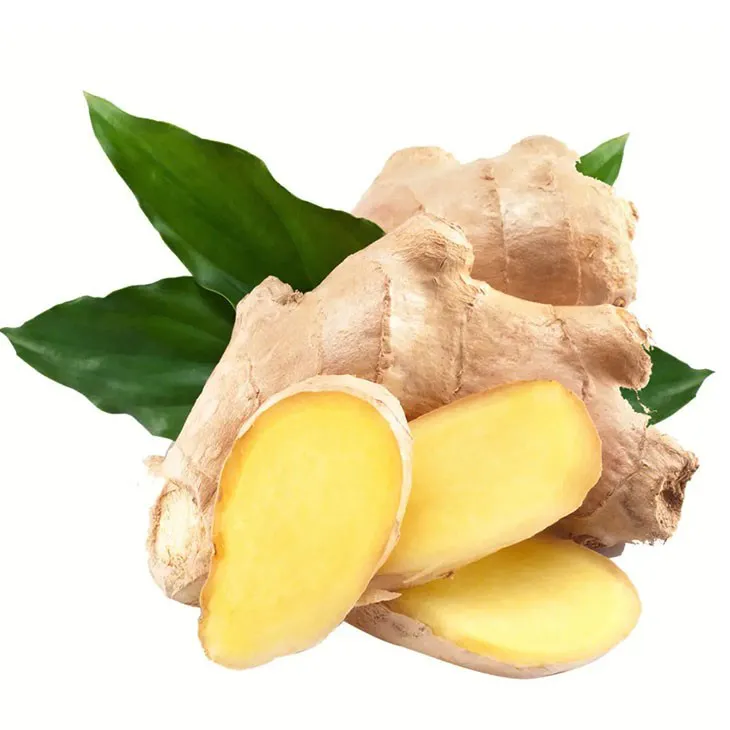- 0086-571-85302990
- sales@greenskybio.com
5 Big Reasons for Using Ginger Extract in the Food Industry.
2024-12-11

1. Unique and Zesty Flavor
Ginger Extract is highly regarded in the food industry for the unique and zesty flavor it imparts. This flavor is distinct and can transform the taste profile of a wide variety of food products.
In the realm of beverages, Ginger Extract can be a game - changer. For example, in ginger ale, it provides the characteristic spicy - sweet flavor that consumers love. The zingy taste of Ginger Extract cuts through the sweetness, creating a balanced and refreshing drink. It is not only used in traditional ginger ale but also in modern craft sodas, where it can be combined with other flavors like citrus or berries to create complex and interesting taste combinations.
In the world of confectionery, ginger extract adds an exciting dimension. Ginger candies are a classic example. The strong, spicy flavor of ginger extract is concentrated in these small treats, appealing to those who enjoy a bold taste. It can also be used in chocolate - making, where it pairs surprisingly well with the richness of chocolate. The combination of the smooth, creamy chocolate and the spicy kick of ginger extract creates a luxurious and indulgent flavor experience.
In savory dishes, ginger extract is equally valuable. In Asian cuisine, it is a staple ingredient. For instance, in stir - fries, it adds a depth of flavor that is hard to replicate with other spices. The unique flavor of ginger extract can enhance the taste of vegetables, meats, and seafood alike. It can also be used in marinades, where it penetrates the food and imparts its distinct flavor throughout.

2. Natural Preservative Properties
One of the significant advantages of using ginger extract in the food industry is its natural preservative properties. As consumers become more conscious about the ingredients in their food and the potential harm of artificial preservatives, natural alternatives like ginger extract are gaining popularity.
Ginger extract contains compounds such as gingerol and shogaol, which have antimicrobial properties. These compounds can inhibit the growth of bacteria, yeast, and molds. In perishable food products like baked goods, ginger extract can help extend the shelf - life. For example, in bread, the addition of ginger extract can prevent the growth of mold for a longer period compared to bread without it.
In the case of sauces and dressings, which are often at risk of spoilage due to their moisture content, ginger extract can be a valuable addition. It can keep these products fresh for a longer time, reducing food waste. This is especially important in the food service industry, where large quantities of sauces and dressings are prepared.
In canned or bottled products, ginger extract can also play a role in preservation. It can work in synergy with other preservation methods, such as heat treatment or acidification, to ensure the long - term stability of the product. This makes it a cost - effective and natural solution for food manufacturers looking to maintain the quality of their products over time.

3. Health - Promoting Qualities
The health - promoting qualities of ginger extract make it a highly appealing ingredient in the food industry, especially in the context of the growing health - conscious consumer base.
Ginger has long been known for its anti - inflammatory properties. The gingerol in ginger extract is thought to be responsible for this effect. Inflammation is associated with a variety of health problems, including arthritis and heart disease. By incorporating ginger extract into food products, consumers can potentially benefit from its anti - inflammatory effects. For example, in functional foods or health - targeted snacks, ginger extract can be a key ingredient.
Ginger extract is also beneficial for digestion. It can stimulate the production of digestive enzymes, which helps in the breakdown of food. This makes it a great addition to products like digestive biscuits or herbal teas. For people with digestive issues, consuming foods containing ginger extract may provide some relief.
Another aspect of ginger extract's health benefits is its potential to boost the immune system. It contains antioxidants that can help protect the body against free radicals. In fortified foods or dietary supplements, ginger extract can contribute to overall health improvement. This is particularly relevant in the current health - conscious environment, where consumers are actively seeking ways to enhance their well - being through diet.

4. Pleasant Aroma
The pleasant aroma of ginger extract is another reason for its extensive use in the food industry. The smell of ginger is both warm and inviting, and it can enhance the overall sensory experience of food.
In the baking industry, the aroma of ginger extract can transform a simple cake or cookie into a more appealing treat. When a batch of gingerbread cookies is baking, the spicy - sweet aroma of ginger fills the air, creating a cozy and inviting atmosphere. This aroma can also stimulate the appetite, making consumers more likely to purchase and enjoy the product.
In the production of jams and preserves, ginger extract can add an extra layer of complexity to the aroma. The fruity smell of the jam combined with the warm scent of ginger creates a more alluring product. This is important as the aroma is one of the first things consumers notice when they approach a food product.
In the case of ready - to - eat meals, the aroma of ginger extract can make the product seem more fresh and appetizing. Whether it is a stir - fry or a casserole, the addition of ginger extract can give the meal a home - cooked and inviting smell, which is highly desirable in the fast - paced world of convenience foods.

5. Versatility in Food Applications
The versatility of ginger extract is perhaps one of its most outstanding features in the food industry. It can be used in a vast array of food applications, from sweet to savory, and from hot to cold.
In the dairy industry, ginger extract can be used in products such as ice cream and yogurt. In ice cream, it can create a unique flavor profile that combines the cold, creamy texture with the spicy warmth of ginger. In yogurt, it can add a zesty twist to the otherwise plain and creamy product.
In the meat industry, ginger extract is a valuable ingredient for marinating. It can tenderize the meat while also adding its characteristic flavor. Whether it is beef, pork, or chicken, ginger extract can enhance the taste and texture of the meat. It can also be used in meat - based sauces, where it adds depth and complexity to the flavor.
In the world of salads, ginger extract can be used in salad dressings. It can provide a different flavor option compared to traditional dressings. The spiciness of ginger extract can add an interesting contrast to the fresh and cool vegetables in the salad. It can also be used in pickled vegetables, where it imparts its flavor and helps with preservation.
In conclusion, ginger extract offers numerous benefits to the food industry. Its unique flavor, natural preservative properties, health - promoting qualities, pleasant aroma, and versatility all contribute to its value as an ingredient. As the food industry continues to evolve and consumers demand more natural, healthy, and flavorful products, ginger extract is likely to play an increasingly important role.
FAQ:
Question 1: How does ginger extract enhance the taste profile of food?
Ginger extract has a unique and zesty flavor. When added to food, it blends with other ingredients and adds a distinct spiciness and tanginess. This combination enriches the overall taste, making it more complex and interesting.
Question 2: In what way does ginger extract act as a natural preservative?
Ginger extract contains certain bioactive compounds. These compounds can inhibit the growth of spoilage - causing microorganisms such as bacteria, yeast, and molds. By suppressing their growth, it helps to keep the food fresh for a longer time, thus extending the shelf - life.
Question 3: What are the specific health - promoting qualities of ginger extract?
Ginger extract has anti - inflammatory properties. It can also aid in digestion by stimulating the production of digestive enzymes. Additionally, it may help in reducing nausea and has antioxidant effects that can protect the body's cells from damage.
Question 4: How does ginger extract add a pleasant aroma to food?
Ginger has volatile compounds that are released when it is used in the form of an extract. These compounds have a characteristic and inviting smell. When added to food, they spread and create an appealing aroma that can stimulate the appetite.
Question 5: Can you give some examples of the wide range of food applications for ginger extract?
Ginger extract can be used in baking, for example, in gingerbread or spiced cakes. It is also used in beverages like ginger ale or herbal teas. In savory dishes, it can be added to stir - fries, curries, and marinades.
Question 6: Is ginger extract safe for all consumers?
For most consumers, ginger extract is safe. However, some people may be allergic to ginger. Also, excessive consumption may cause some side effects like heartburn or gastrointestinal discomfort in sensitive individuals.
Related literature
- The Role of Ginger Extract in Food Preservation"
- "Health Benefits of Ginger Extract in the Context of Food Consumption"
- "Ginger Extract: Flavor Enhancement in the Food Industry"
- ▶ Hesperidin
- ▶ Citrus Bioflavonoids
- ▶ Plant Extract
- ▶ lycopene
- ▶ Diosmin
- ▶ Grape seed extract
- ▶ Sea buckthorn Juice Powder
- ▶ Fruit Juice Powder
- ▶ Hops Extract
- ▶ Artichoke Extract
- ▶ Mushroom extract
- ▶ Astaxanthin
- ▶ Green Tea Extract
- ▶ Curcumin
- ▶ Horse Chestnut Extract
- ▶ Other Product
- ▶ Boswellia Serrata Extract
- ▶ Resveratrol
- ▶ Marigold Extract
- ▶ Grape Leaf Extract
- ▶ New Product
- ▶ Aminolevulinic acid
- ▶ Cranberry Extract
- ▶ Red Yeast Rice
- ▶ Red Wine Extract
-
Ginger Extract
2024-12-11
-
Licorice Root Extract Powder
2024-12-11
-
Cocoa Extract
2024-12-11
-
Hesperidin
2024-12-11
-
Grapefruit Seed Extract Powder
2024-12-11
-
Lily extract
2024-12-11
-
Rosemary extract
2024-12-11
-
Epimedium extract powder
2024-12-11
-
Cassia Seed Extract
2024-12-11
-
Echinacea Extract
2024-12-11




















